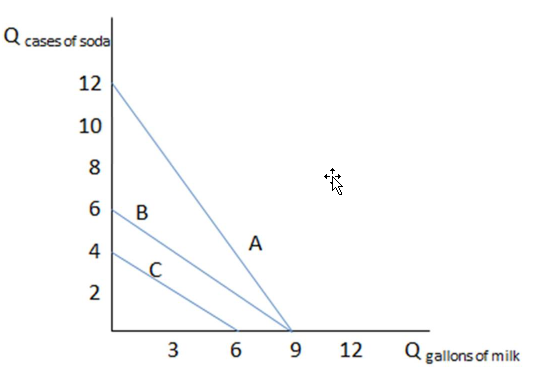Fogel and Engerman (1974) are generally of the opinion that American slavery
(a) was antiquated, inefficient and was on the verge of existance.
(b) was thriving and profitable in the decades prior to the Civil War.
(c) provided conditions for a reasonably normal family life and standard of living for
the slaves with very little breakup of slave families or exploitation of slaves.
(d) was inferior to the wage-labor system in the South and would have likely been
replaced with time.
(b)
You might also like to view...
When a good suddenly becomes more scarce in a free market, caused by a significant increase in consumer demand, then
A) it is a clear sign that households have become more greedy. B) the price will tend to rise rapidly in light of the greater scarcity. C) suppliers will gain in the exchange and buyers will lose. D) the law of demand will be contradicted because people will be buying more, not less, at a higher price. E) all of the above are true.
If the apartment owner decides to fine both the roommates if the apartment is dirty, such that now if neither of them clean they each get a 5 utility loss, what would the new equilibrium be now?
a. John cleans, Joe doesn't b. Joe cleans, John doesn't c. Neither of them clean the apartment d. Both A&B
If Bert has budget constraint A in the graph shown, what is his opportunity cost of three gallons of milk?
This graph shows three different budget constraints: A, B, and C.

A. Twelve cases of soda
B. Eight cases of soda
C. Four cases of soda
D. It is impossible to say without knowing Bert's income.
An example of a beneficial externality is
a. airport noise. b. a blooming curbside bed of violets. c. pollution of a fishing lake. d. freeway congestion.